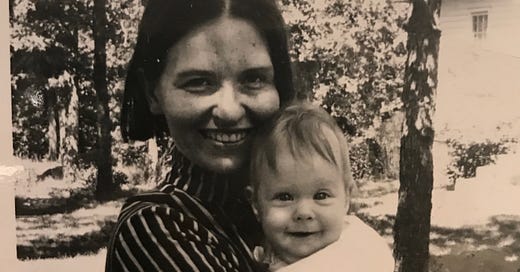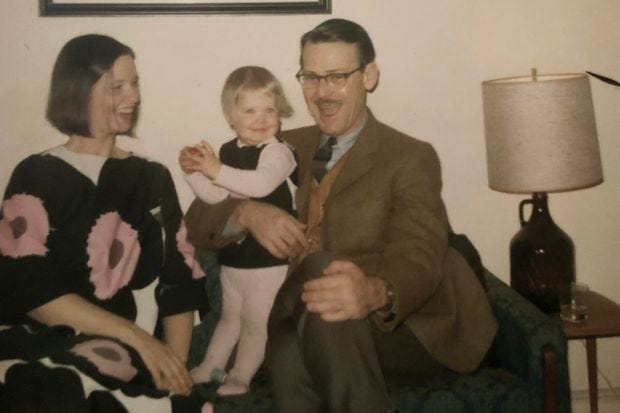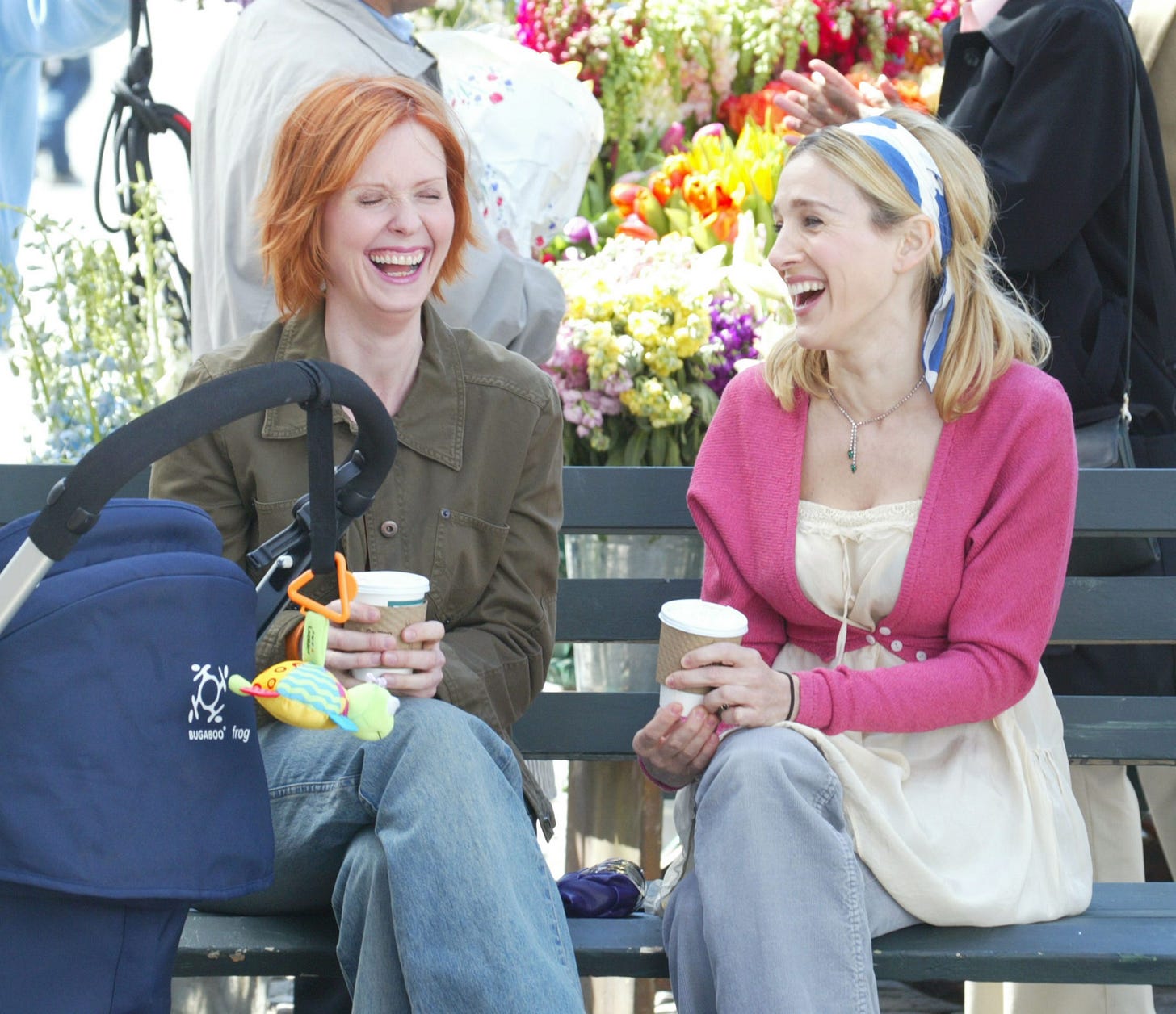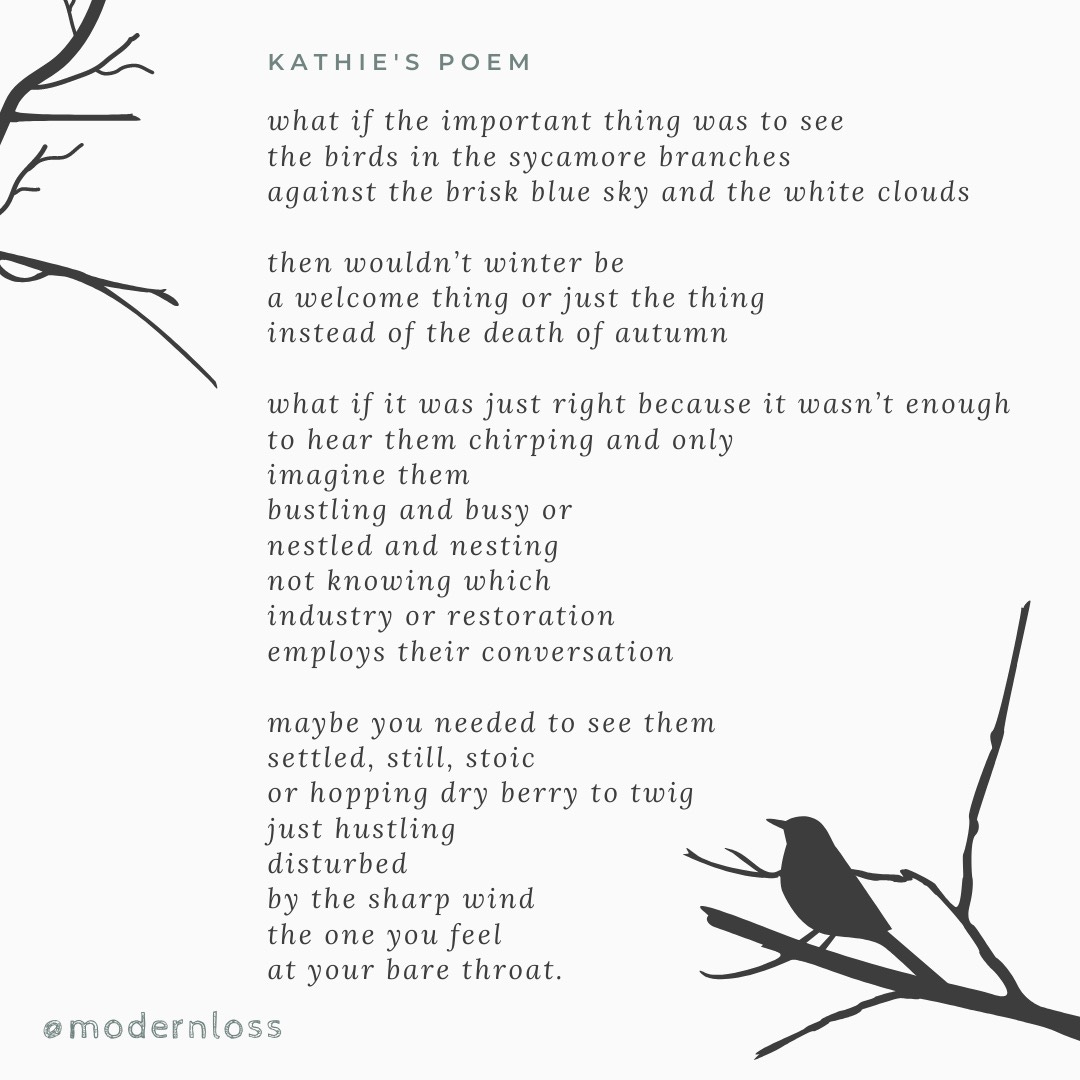Cynthia Nixon Gets It
The 'Sex and the City' star sits down with Modern Loss for an intimate, wide-ranging conversation about channeling her mom on film, grieving with family, and much more.
In case you hadn’t noticed as announced by seemingly every single retail advertisement and promotion, Sunday is Mother’s Day throughout much of the world
There’s a reason this is one of our most widely-read issues of the year: When you've got maternal-related loss in your life (and that includes so many relationships, including children, partners, siblings, mother figures, fertility issues, complicated relationships), this ceases to be a fun and joyous holiday solely hinging on where we're brunching and painted macaroni bracelets. To add even more complications, the pandemic has kicked up an enormous array of feelings surrounding older losses. And, quite literally, millions of people are heading into their first Mother’s Day with an empty space at the table.
It is impossible to fill the void left by your person. But in some small one, I hope my very special, no-holds-barred conversation with (honestly, the phenomenal) Cynthia Nixon below will make you feel a bit less alone, or at the very least give you a meaningful way to fill 15 minutes of your day.
As always, our community is a touch away on all social media. We're also here with helpful content 24/7 over on our website, updated for this weekend. Here are a few of my favorite pieces:
RoseAnna Cyr’s guide to A Widowed Mother’s Day à la COVID-19
Kate Spencer’s ever-hilarious and logical How I’m Making Mother’s Day My Bitch
Erica Lyons’ Hong Kong-based if only reflection in The Vaccine Wasn’t Ready in Time to Save Mom
Anna Haines’ struggle with grief and her mixed race background in I Lost My Racial Identity When My Mother Died
Monica Wesolowska’s print-and-save 7 Tips for Speaking with a Bereaved Mother
If you're one of the hundreds of Mother's Day gift swap participants, I invite you to post your experience and tag us so that we can share with everyone. Be sure to follow us on Instagram, where soon we’ll announce our Father’s Day swap. And, as always, please consider supporting our work through a paid subscription, which gives you access to all of our virtual events and much more — next up: "Cultivating Calm: Mindfulness Tools for Enhancing Resilience,” on May 11 at 8:30 pm ET.
Hallmark holidays are always an unfair slog, and especially while still in some form of isolation. My hope is that our individual and collective struggles over the last year-plus have opened us up to how the rote things we often say to comfort people in grief clearly fall flat, and that they push us to do better with each other.
— Rebecca Soffer
Cynthia Nixon Talks Losing Her Mom, Fighting for New York and the Future of Everyone’s Favorite Show
REBECCA SOFFER: Cynthia, thank you so much for speaking with me today.
I’d love to talk about your experience playing Gail in James White, which won the NEXT Audience Award at Sundance in 2015. She’s a terminally ill woman and mother of a son who’s finding his way. Your own mom, Anne, died in 2013, the year you shot the film. At what point did you agree to take on such a role, and why?
NIXON: I did not agree to take it on till she had died. Films come together very quickly. It was very autobiographical of Josh Mond, who wrote the script, and of his mother, from a particular lens.
Josh and I met a number of times, and he talked to me about his mother's illness and death. There was so much that was familiar from my mother's illness and death: Upper West Side women, bohemian, wanted to be in the arts, didn't quite make it. Gave birth to an only child who was the focus and maybe having the life the mom wished that she had had to some extent. Also, I wore a lot of my mother's jewelry in the movie.
SOFFER: Wow. That must have been quite an experience.
NIXON: Plus, I looked at a lot of pictures of Josh's mom, and her aesthetic and my mother's aesthetic seemed so similar. We filmed it in an Upper West Side apartment, and so much about it felt real and evocative. Of course, I was being my mother. When I was a kid, I looked like my dad, but after I passed a certain point, like 30, I looked so much like her. So it was almost like resurrecting her and taking her through those last months, weeks and days, and kind of trying to touch her again in that way.
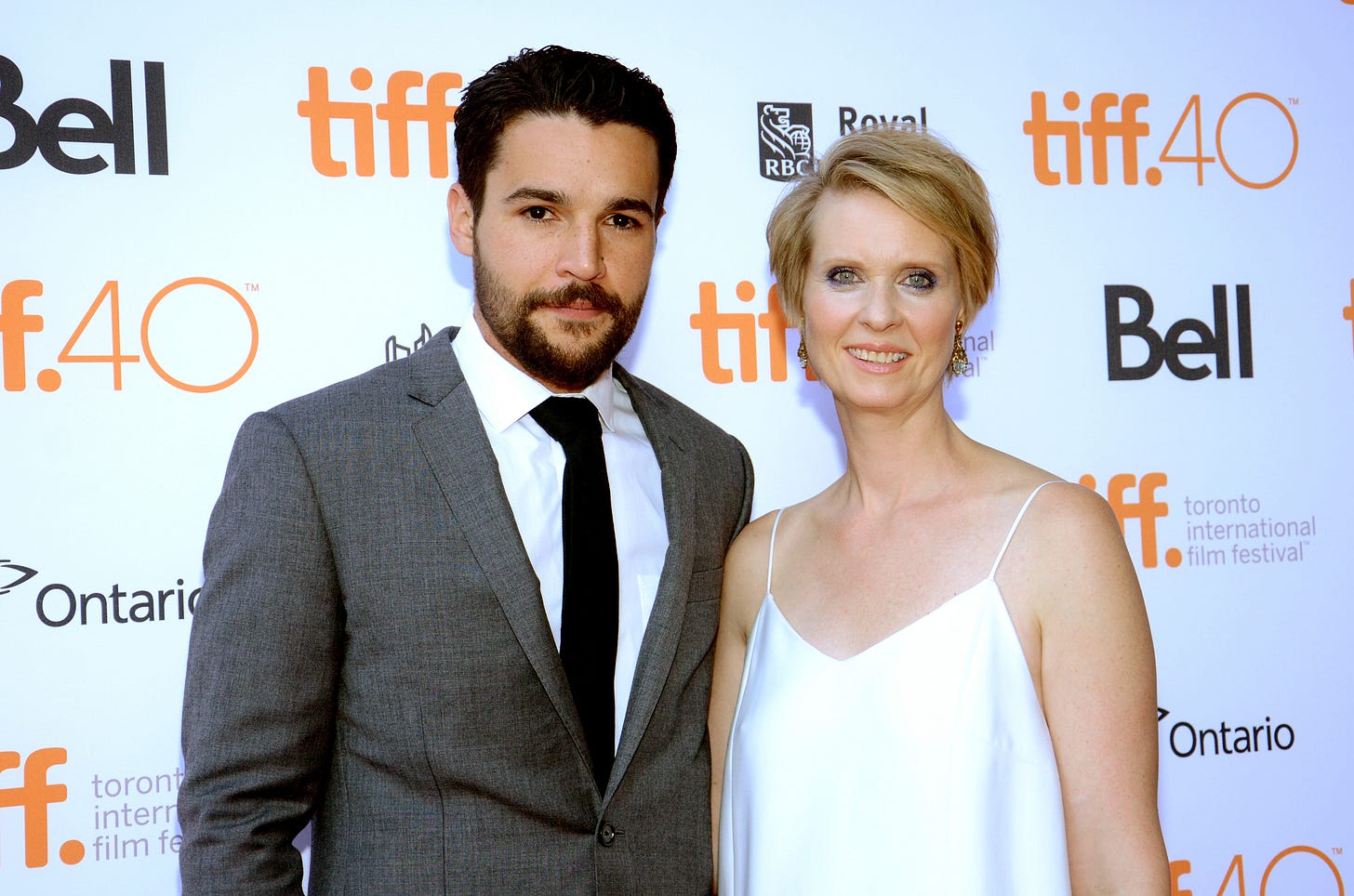
SOFFER: How powerful.
NIXON: But it didn't even occur to me not do [the movie] because my mother's death was so recent. I felt like, "This would be a good thing to do because it will help me."
It was almost like resurrecting her and taking her through those last months, weeks and days, and kind of trying to touch her again in that way.
SOFFER: Hollywood often gives such a sanitized view of dying, death and grief. We avoid looking at it through a stark lens for many reasons. That's why I was moved by the film. I was like, "Well, this is great. It's not a Lifetime movie." When my mom died, she didn't have a long illness, but I can tell you it was not pretty for any of us.
NIXON: One of the things I loved the most about the script and the end of the movie is that during Gail's illness and in her last days, she doesn't become wiser, and there's no upside to her dying.
I had cancer myself in 2006, and it wasn't very serious. I was working at the time. Nobody knew, only a small handful of people. I did tell a dear and loving friend early on. She became so hysterical that she got up on a chai and wouldn't come down until I promised her something that I had no intention of doing. Like, she wanted me to become a vegetarian or something. If I had any doubts whether I would tell more people, that really cinched it for me.
SOFFER: I can imagine.
NIXON: It was like, "I'm dealing with cancer. It's scary, but not that scary. I know it's going to be okay, but by telling you and having to deal with all your huge emotions and essentially caretake you, this is like...Okay, not telling more people."


So I waited until I was obviously out of the woods. Because when you say, "I have cancer," so often the next question is, "But you're doing okay now, right?" They want to jump to the happy ending. Not only because of the fear and the pain. We just don't know what to say when someone has died, and we don't know maybe even more what to say when someone is in the process of dying or maybe dying. It's very hard, and it's something all of us have to get better at. I have to get better at it.
SOFFER: Like, you’re the one who has to make sure everybody else is feeling comforted when you're directly going through a rough time. So, can you tell me about your mom’s end-of-life experience?
NIXON: [Describes the first time they met her mother’s doctor] He said, "Let me tell you about your cancer. Because it's Stage IV, and because it's the third time you've had it, and because you will die of it. But it's moving very slowly. So I want you to imagine you're at a party, and there is a guy standing next to you. He's awful. He's drunk and loud and racist and sexist, his breath is terrible, he's stepping on your feet, and he won't shut up.
But you shouldn't try and kill or outrun him. You should just try to understand he's there and that you're there too and to ignore him as best as possible. Because you're going to have a lot more time if you can. This threat is there, but it's very slow-moving. The thing is not to focus on that but to focus on everything else.”
SOFFER: Wow. You had an amazing doctor. Can he please write a book?
NIXON: I know. He was really incredible. My mother had been such a good patient. She really invested, and she fought and fought. When the doctor came in that morning after [he told me she was dying], he didn't varnish it. He said, "You're dying." And she said, "Well, I thought I was,” and gave him a heartfelt thank you for everything.
Then I watched her. All the effort she had put into getting well, she put into dying. It was like she set her mind to it. We'd only been delivered this news a couple of hours before, and she turned to me, kind of annoyed and a little angry, and said, "Why is it taking so long? Let’s get this going.” I was like, "Mom, what are you talking about? It's going to take a little while, we can't just take you out and shoot you." And she said, "Why not?"
SOFFER: Um…I don’t even know how to respond to this properly. Canada has legalized medically-assisted dying, so...she was just in the wrong country, I guess?
NIXON: Right. But it was good that even though it took two and a half, three days, people got to come in and be with her for a little bit. The other thing that the doctor told me that was so important was, "The hearing is the last thing to go. Whatever you do, don't say anything in front of that person that you wouldn't want to say to them if they were alert and awake and themselves."
SOFFER: What do you think the last thing your mom heard was?
NIXON: I think she heard all of us. We sang a bit, and I think that she heard us telling her that we loved her and that we would miss her but it was okay for her to go.
My oldest child, who was at that point 17 or 18, was crying so hard after my mom died. And I said, "Sam, what's wrong?" Sam said, "I have four parents," because Sam has his dad and me and my wife and his dad's wife who have all had such a hand in raising him. And it was so painful for him to go through that, and that he has the wonderfulness of four parents. But it didn't hit him until that moment that he was going to have to go through this four times.
SOFFER: Wow. How did you even respond while knowing that, well, it’s true.
NIXON: "Sam, I know. I know. I know."
…it was so painful for him to go through that, and that he has the wonderfulness of four parents. But it didn't hit him until that moment that he was going to have to go through this four times.
SOFFER: How did people support you after her death?
NIXON: I was surprised by how many people said or wrote to me, "This is a major event in your life, and it's big and difficult and painful whatever your relationship was." I didn't mind it. But I was fascinated they felt a need to qualify that people's relationships with their mother are very complicated. One woman I'm friendly with wrote me that. But on the card was a picture of a butterfly, and it moved me very much. She didn't say something like, "She's gone on to a better place."
SOFFER: Thank goodness for that.
NIXON: With a very light touch, it sort of put the idea in my head that maybe there was a release and a further something for her.
Rebecca Soffer: You’ve harnessed your enormous platform for activism in so many different ways, one of which was running against Andrew Cuomo in the 2018 New York gubernatorial primary. When you look at your former opponent and some of the fallout around nursing home deaths in New York State and the grief stemming from it, what is your reaction?
NIXON: That it's horrific but not surprising. This is what we tried to say during our campaign, that this is a person who cares about consolidating power, his own reelection and getting as much money from donors and catering to their needs over the needs of the vast majority of New Yorkers. Not only did he cover up the nursing home deaths, but he really caused them by pushing people into the nursing homes and not being mindful of either the people who were getting sick or the people who were sitting ducks in them.
Not only did he cover up the nursing home deaths, but he really caused them by pushing people into the nursing homes, not being mindful or caring of either the people who were getting sick or the people who were sitting ducks in those nursing homes.
SOFFER: Any signs of hope that might come out of this particular time?
NIXON: There are people like Andrew Cuomo who are really in the business of politics for power and their own self-aggrandizement. And then there are people whose campaigns I have supported and who’ve come out of the woodwork this past year either around COVID or Black Lives Matter, who are both in office and running for office because they really do want to make things better. There are so many things in our world that are so messed up and need tending, and I am impressed by how many "regular people" are stepping up, being activists, and running for office.
SOFFER: Speaking of New York, everyone's overjoyed that you’re stepping back into Miranda Hobbes' shoes to film And Just Like That, the Sex and the City revival for HBO, which you revealed on Twitter in January. Full disclosure, I recently rewatched the entire SATC series as a mental health coping mechanism and it was an extremely wise decision.
SATC was about four women in the city, but it's also about New York City as a character. As a fellow New Yorker, I think back to last March and can clearly hear the sirens screaming toward Mt. Sinai West on 10th Avenue and actually feel all of the confusion and fear of that time. This city has endured so much grief and change, and how much it will go back to what it was beforehand remains to be seen. How will New York be depicted as you film during COVID? Will there be any discernible difference?

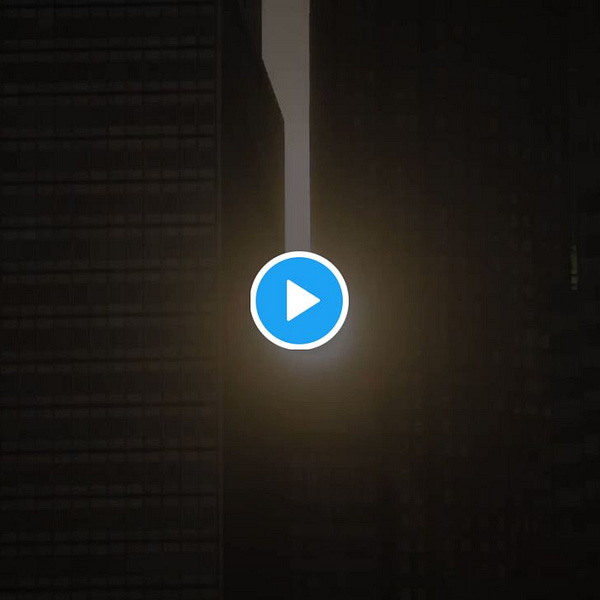
NIXON: I think that remains to be seen. The episode we aired after 9/11, we actually didn't write it about 9/11 and we shot it before 9/11, but it seemed strangely resonant. So it was actually a wonderful inadvertent tribute episode. Of course we're going to have to deal with the fact of COVID and quarantine and all the economic devastation. But I think it's going to be very much a sense of we're coming out of it and how great that we can gather again and we've missed each other. Those kinds of things.
So we'll allude to it, but I think it's – knock on wood – going to be depicting a largely post-COVID, post-quarantine world.
Interview has been edited for clarity and length.
Kathie’s Poem
Below is a special gift from Cynthia Nixon – a poem by her dear friend Kathie, who passed away earlier this year, which she and Kathie’s family allowed us to share exclusively with Modern Loss readers.
Props to the Brands That Get It
Finally…FINALLY…brands are realizing they don’t have to shove Mother’s Day content down the throats of every one of their subscribers. Big round of applause for the ones who asked their customers if they wanted to opt out of certain messaging this year. Keep on doing it and you’ll make lots of new friends. Click below to see a list of dozens on this thread:

Want more? Become a Modern Loss member.
👯 Access to our peer-to-peer Facebook group
📆 Virtual Events (yoga for grief support, mindfulness meditation, therapist-led sessions and even some communal baking) - next up, mindfulness on 5/11 at 8:30 pm
📝 Exclusive author conversations
🌟 Premium Content
Thank you to our Founding Members
The Dougy Center
Good Grief
Uplift Center for Grieving Children
Pria Alpern, PhD
Ruth Ann Harnisch
Tim Federle
Amanda Johns Perez
Audrey Beerman
Betsy Hook

